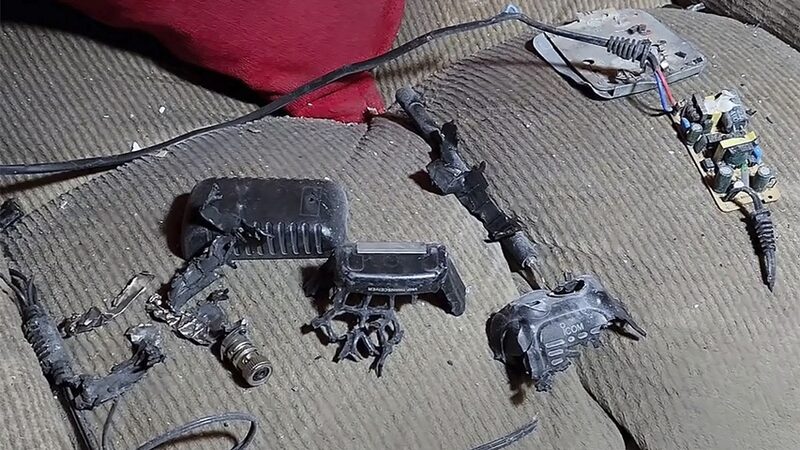📍 Beirut, Lebanon: A wave of confusion has swept over Lebanon following a series of explosions that rocked Beirut's suburbs and the Bekaa Valley on Wednesday. Thousands of handheld walkie-talkies used by members in the region were reportedly destroyed, just a day after pagers exploded on Tuesday.
Images circulating online show the charred remains of walkie-talkies bearing the name of Japanese communications company Icom, resembling the IC-V82 model. The sudden incidents have left many scratching their heads, trying to piece together what exactly happened. 🤔
Icom Breaks Silence
In a statement on Thursday, Icom clarified that they had ceased production and sales of the IC-V82 two-way radio back in October 2014, including the batteries required for the device. Yoshiki Enomoto, an Icom director, suggested that the damage evident around the battery compartments hinted at possible modifications. He speculated that the batteries might have been altered after purchase. 🔎
Adding to the puzzle, Ray Novak, senior sales manager for Icom America's amateur radio division, told the Associated Press that the devices involved appear to be counterfeit. “I can assure you, they are not our products,” he stated firmly.
Brands Distancing Themselves
The plot thickens as other companies are pulled into the fray. Gold Apollo, associated with the pager involved in Tuesday's incident, announced that they had only licensed their brand name to Budapest-based BAC Consulting KFT for the AR-924 pager. “According to our agreement, we authorize BAC to use our trademark for product sales in designated regions,” the company explained. “But the design and manufacturing of the products are solely the responsibility of BAC.”
However, in a twist, Cristiana Barsony-Arcidiacono, CEO of BAC Consulting, denied any involvement in producing the pagers. “I don't make the pagers,” she told NBC News. “I am just the intermediary. I think you got it wrong.”
Meanwhile, Hungarian government spokesman Zoltan Kovacs weighed in on X (formerly Twitter), stating, “The referenced devices have never been in Hungary.” 🇭🇺
Cybersecurity Concerns Raised
Hadi El Khoury, a cybersecurity expert based in Paris, highlighted the risks of relying on external technology. “If you don't have your own supply chain, then the device in your pocket is not hacker-proof,” he told Al Jazeera. He emphasized that using technology from abroad could introduce vulnerabilities. “When they use devices or software from the West, it means there could be weak links in the chain somewhere,” El Khoury added.
The unfolding situation has left many questions unanswered, sparking debates about supply chain security and the reliability of communication devices. As the investigation continues, the region watches closely, eager for clarity. 🕵️♂️
Reference(s):
Confusion surrounds companies in the Lebanon explosion cases
cgtn.com




